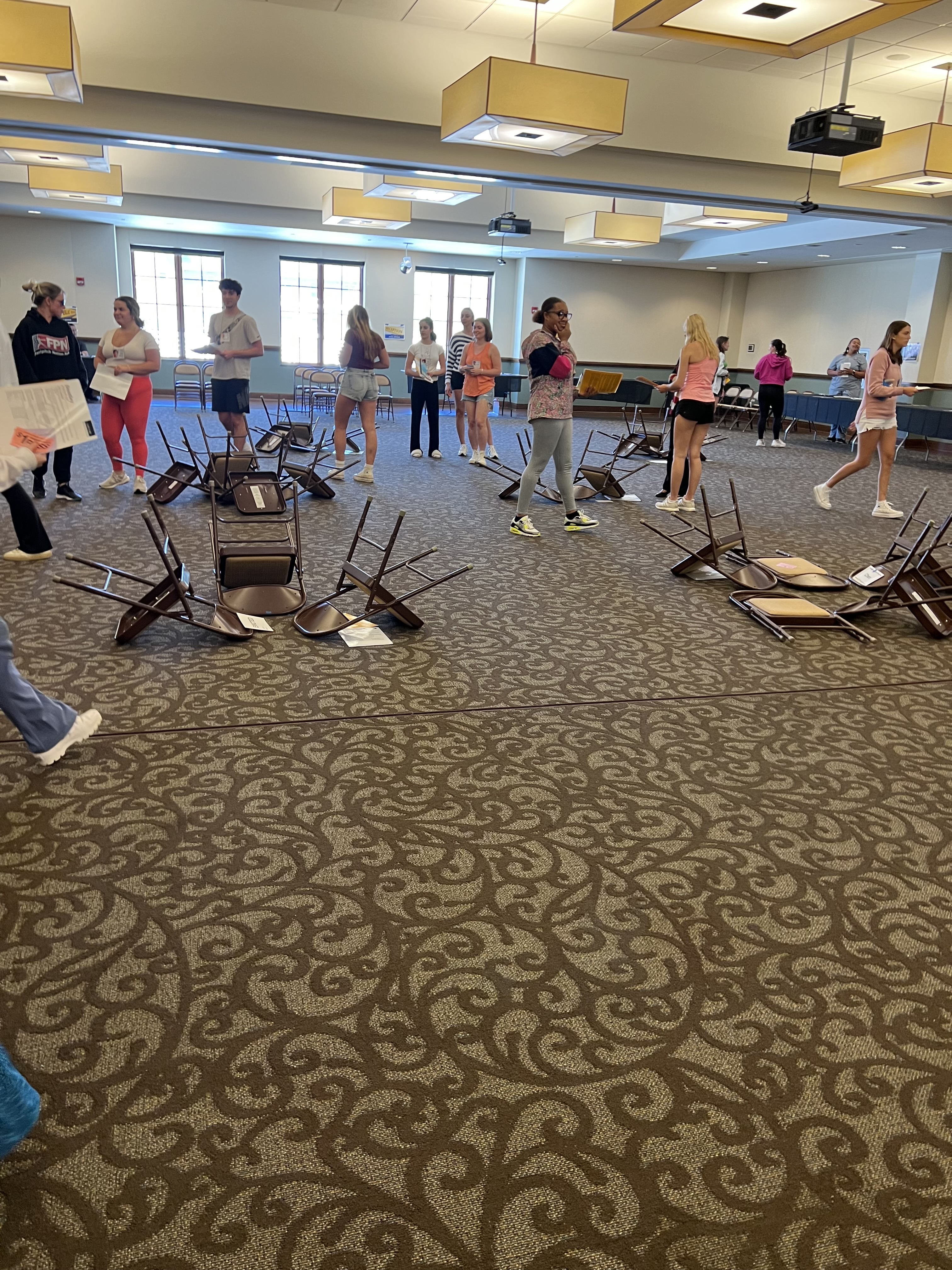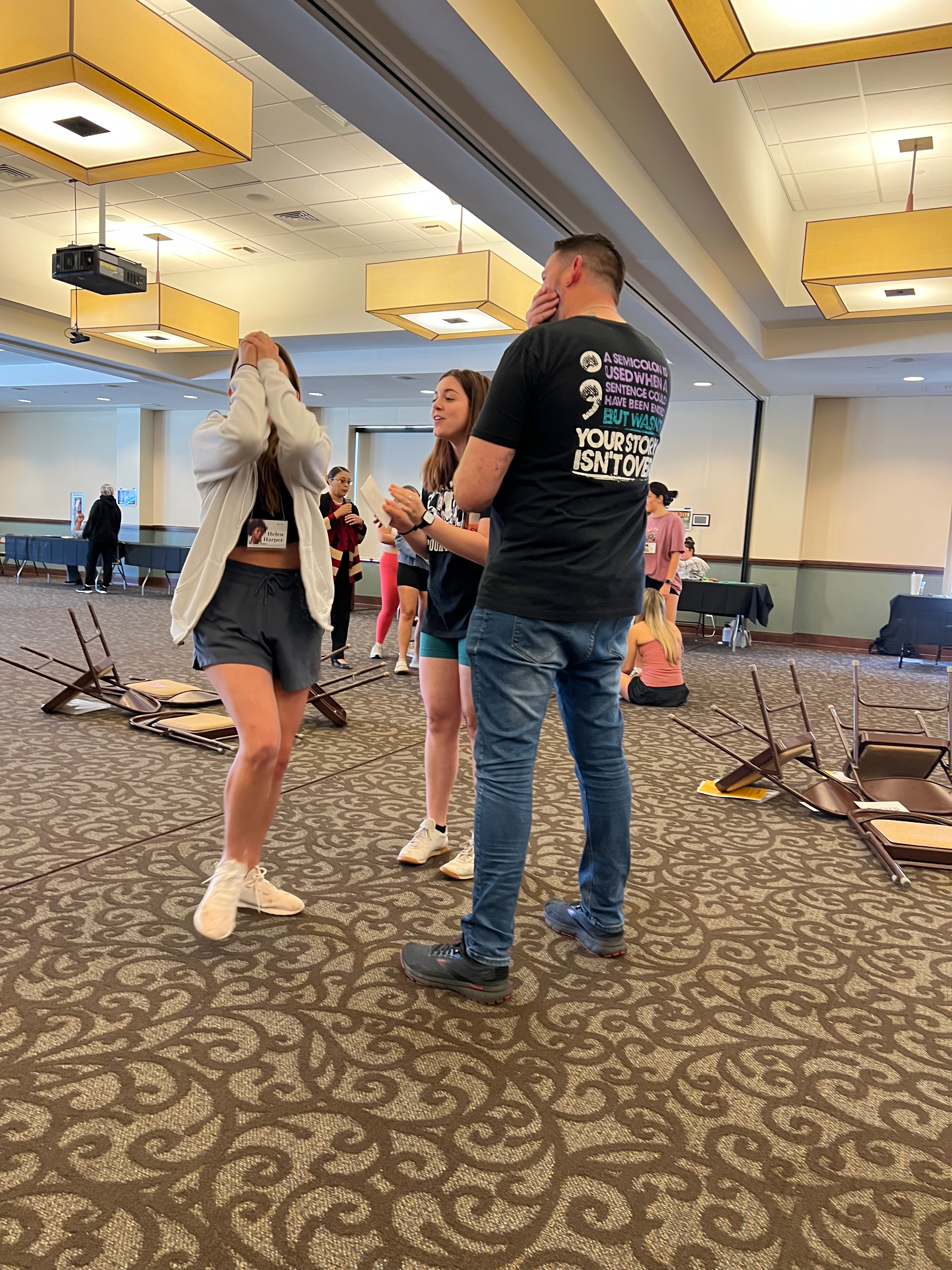Forty four nursing students joined together to experience the CAPS and explore the question: could you survive in poverty for a month?

Millions of Americans live in poverty every day. Many more people have incomes above the poverty line but their incomes are still low enough to qualify for programs like SNAP and Medicaid. The recent economic downturn has seen unemployment rates rise and the use of emergency food pantries increase.
It is difficult for those will access to basic necessities without private or governmental assistance to truly understand the situations that families living in poverty experience every day — the decisions they have to make, and the fears and frustrations they feel.
The Community Action Poverty Simulation (CAPS) provides participants with the opportunity to assume the role of a low-income family member living on a limited budget. The experience is divided into four 15-minute sessions, each of which represents one week in which you must provide for your family and maintain your home.
As part of NRS 2200 Health Assessment, taught by Assistant Professor of Nursing Jeanmarie Koonts, 44 nursing students joined together to experience the CAPS and explore the question: could you survive in poverty for a month?
“This poverty simulation dramatically demonstrates how much time and energy many families have to give just to survive from day to day. It quickly dispels the myth that people would do fine if they would only go out and get a job,” one participant said.
With the help of the faculty Cyra Kussman, Nita Skillman and Bethany Fearnow from the School of Health Sciences Interprofessional Simulation Center and facilitated by Tiffany Morris, chair of the Department of Nursing, this activity brought focus and attention to the more than 24,000 Alamance County residents leaving below the poverty line each day.
Students had roles assigned placing them into family units/groups which required that they lived in poverty for a “month.” During this “month,” students had to pay rent, utilities, childcare, groceries, get their children to school and themselves to work. Along the way, they encountered life events-both good and bad such as appliances breaking, cars being reposed, winning money on a lottery ticket, the kindness of a stranger or being evicted.

During the first week, the 30 nursing students from the Class of 2025 started with smiles and nervous giggles but as the simulation progressed, frustration levels rose.
By the end of week four, 50% of the families had been evicted from their homes (communicated by the overturning of their chairs) and many of the children were going hungry from lack of food. Several parents lost custody of their children, while others found themselves out of work or in jail. Smiles and giggles turned to anxiety, frustration and sorrow.
The 14 ABSN Class of 2023 students, having previously completed the simulation as participants, served in the roles of community partners. In this role, they served as bankers, case workers, faith leaders, members of a community health clinic and more, representing the variety of resources, or lack thereof, for clients living in poverty.
Following the simulation, a debriefing took place where all students were invited to share their feelings and emotions. The event was described as powerful, eye-opening and empathic.
“I see the value of being a nurse and seeing the patient as a whole person and not just a diagnosis,” a participant said.
Many of the students in the room restated their commitment to being a nurse and to the mission of Elon’s Nursing Department to embrace Healthcare Disparity and Diversity and To Be the Change the World Needs.


